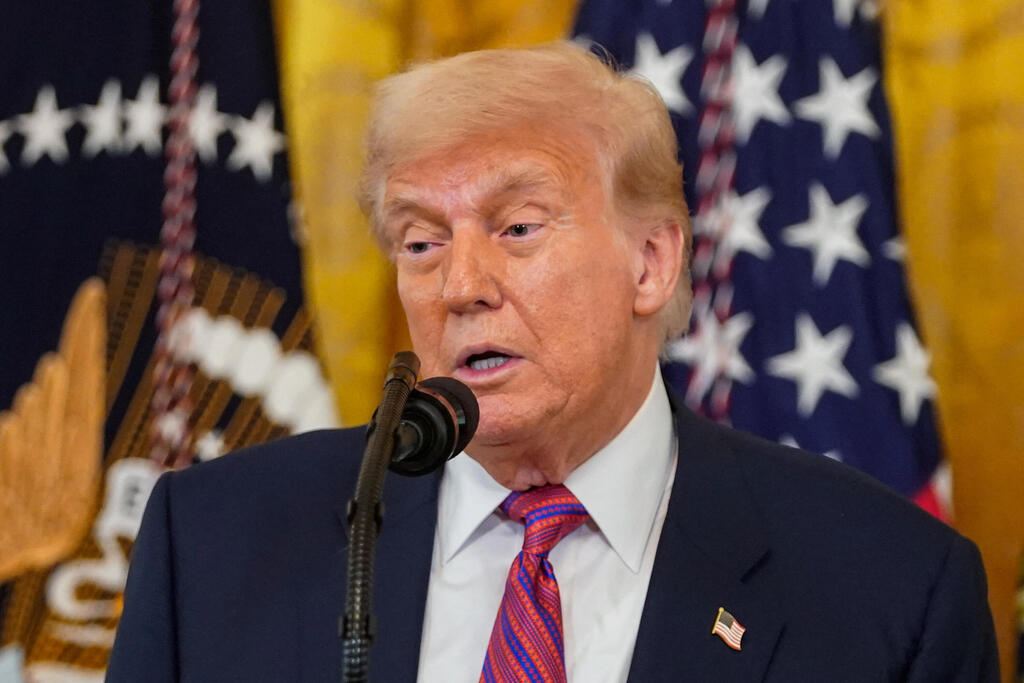“We got most of the hostages back. We’re going to have another 10 coming very shortly, and we hope to have that finished quickly,” Trump said during a dinner with Republican senators at the White House. He also praised his Middle East envoy, Steve Witkoff, as “fantastic.”
The official said the Israeli delegation has been in Doha for 12 days and described the talks as difficult. “Hamas is acting as if time is on its side, but on the battlefield, it will learn that’s not the case.”
Despite the challenges, Israel is considering sending a senior delegation to Doha if Hamas agrees to negotiate the release framework. The proposed delegation could include Strategic Affairs Minister Ron Dermer, Mossad chief David Barnea, National Security Adviser Tzachi Hanegbi and the acting head of the Shin Bet, identified only as “S.”
The delegation’s trip is contingent on Witkoff’s expected arrival in the Qatari capital next week. Israeli officials say his presence could help push the talks toward a final agreement—though Israel does not believe it is yet at that stage.
Mediators have submitted a new draft agreement summarizing points of consensus and offering bridging proposals on remaining gaps. The deal would include a 60-day ceasefire during which Hamas would release 10 living hostages and the bodies of 18 others. During the truce, Israel and Hamas would negotiate terms to end the war, with Trump acting as guarantor for the talks.
One proposed adjustment would alter the ratio of prisoners released for each hostage, slightly increasing the number of prisoners in Hamas’s favor. Israeli officials warn that the change could jeopardize the negotiations.
Outstanding issues include humanitarian aid deliveries, the deployment of Israeli forces inside Gaza, and the conduct of negotiations during the ceasefire period. Officials said there has been no discussion yet on the identities of the hostages to be released. Prime Minister Benjamin Netanyahu has previously said that decision would not rest with Israel.
“We came here with a mandate and room to maneuver,” the official added. “The prime minister and Minister Dermer are in daily contact with us. Israel is demonstrating flexibility, but Hamas’s refusal is raising doubts about its intentions.”
The official said Hamas’s obstruction is not limited to the prisoner issue. “As soon as we moved to discuss other topics, we encountered delays and stalling tactics that have hindered progress.”
The Israeli delegation remains in Doha and hopes Witkoff’s arrival will help advance the talks. “I’d call our approach realistic,” the official said. “If Hamas wants a deal, it needs to move forward. There is heavy fighting underway, and the situation is not in its favor. What they can achieve today may no longer be possible tomorrow.”
Israel, the official said, has full U.S. backing, while Hamas has no international support. “The mediators’ latest proposal arrived at 2 a.m., and we’re reviewing it. There’s been progress on deployment terms. We keep saying yes, but Hamas isn’t responding.”
Two Hamas officials who spoke with Reuters confirmed that no breakthrough has been reached. They said key disagreements remain over Israeli withdrawal maps, mechanisms for aid delivery, and guarantees that a ceasefire would lead to a permanent end to the war.


